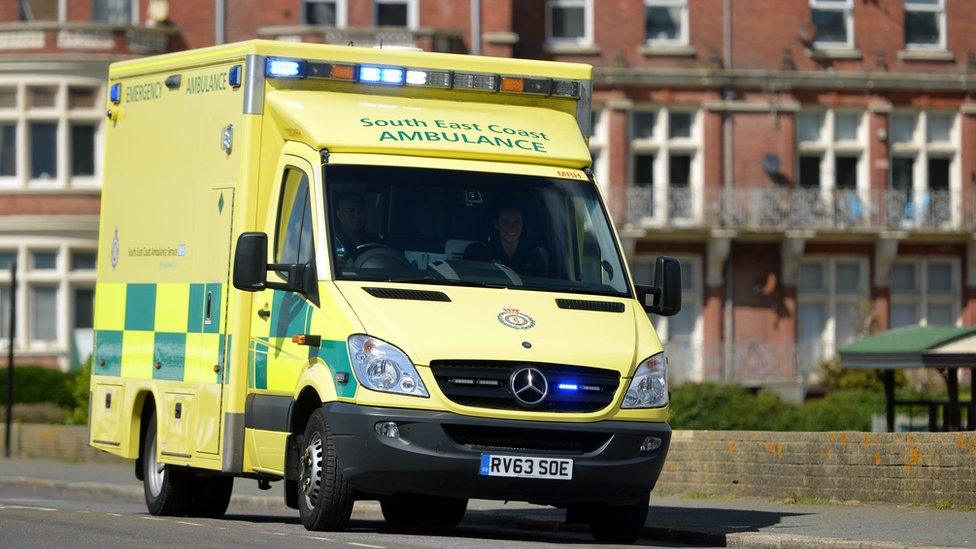Secamb admits 'failings' over 111 ambulance scheme
- Published

The trust delayed sending ambulances to some calls
An NHS trust that delayed sending ambulances to gain time to assess some patients has admitted significant failings around the scheme.
But South East Coast Ambulance (Secamb) said there was no evidence of patient harm, in an independently-led published on Friday.
The review was requested by NHS Improvement, formerly Monitor, which said it would look at the findings.
Secamb was placed in special measures in September.
'Delays allowed'
In the pilot, from December 2014 to February 2015, Secamb delayed sending help for certain 111 calls that had been transferred to the 999 system.
The calls were not those identified by 111 as potentially the most life-threatening, but included those at the next level of urgency, the report said.
The trust delayed dispatching ambulances to allow paramedic staff to call the patient or caller back to get more information and potentially downgrade or upgrade the call.
The project introduced a second stage of review for some calls from the public to NHS 111
Secamb acting chief executive Geraint Davies said: "We are satisfied that this report, which was led by an independent and external clinician and which looked at 185,000 calls, has identified no evidence of patient harm attributable to the pilot.
"We do however recognise that there were significant governance and other failings."
The report said had effective clinical governance arrangements been in place it would have been easier to measure positive or negative effects on patients.
Recommendations included reviewing governance, making changes when planning projects, following best practice and training clinicians to required standards.
In a statement, NHS Improvement said: "We note the report states that there was no evidence of patient harm but the project cannot completely exclude any incident of harm occurred."
It added: "We will review the findings of this report to further support our work so that patients in the South East can be assured that they are getting the quality care they expect."
- Published29 September 2016
- Published18 July 2016
- Published14 March 2016
- Published30 October 2015